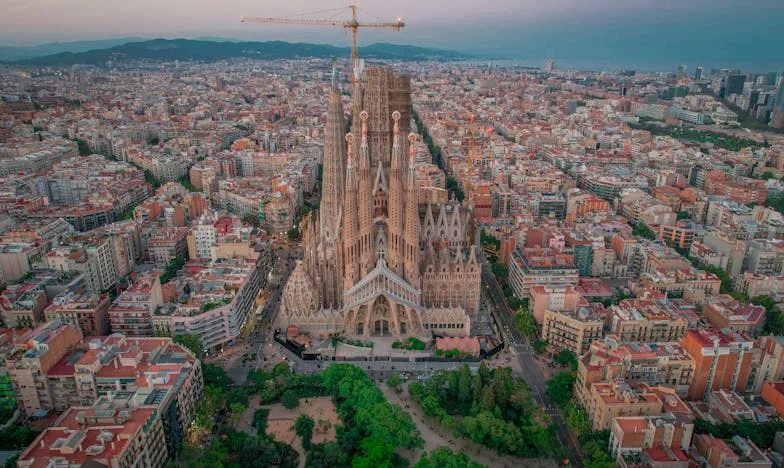Nineteen Years Gone: The Day My Mother Came Back
“Why are you here, Mom?” The word burns my tongue. I haven’t called anyone that in almost two decades, not since the night she stood at the end of my twin bed with her purse clutched to her chest, promising me that I’d be safer somewhere else. I was ten. I knew she was lying.
She sits across from me in the faded Starbucks on 4th and Main, her hands trembling as she wraps them around a cup of lukewarm coffee. Her hair is shorter than I remember—gray streaks cut through the brown like rivers through rock—and her eyes flicker away from mine. “I—I had to see you, Adam. I know it’s been a long time.”
I want to laugh, but it comes out as something closer to a sob. A woman at the next table throws me a glance. I lower my voice. “Nineteen years is more than a long time. It’s a lifetime. You missed everything.”
She looks down at her coffee. “I know.”
Do you? Do you know what it felt like to wake up in a stranger’s house, clutching a plastic bag with two t-shirts and a pair of jeans? To listen to the other kids laugh at my stutter and the way I flinched when someone raised their voice? To spend Christmas staring at the door, hoping you’d walk through it and say it was all a mistake?
I clear my throat. “Why now?”
She inhales, lips trembling. “I need your help, Adam. I lost my job, and they’re going to evict me. I have nowhere else to go. You’re my son.”
The room tilts. I grip the edge of the table so tightly my knuckles turn white. “Your son? You haven’t called me that in nineteen years. You left me.”
Her eyes fill with tears. “I couldn’t take care of you. Your father—he was drinking, and I was scared. I thought the system would be better for you than what we could give.”
“You didn’t even try!” I slam my fist against the table. “You never came to visit. Not once. You just disappeared.” I feel the old anger rising, hot and suffocating, like a hand squeezing my throat.
She wipes her nose. “I was ashamed. And then it got harder to come back the longer I waited. I kept telling myself next week, next month, next year. But I couldn’t face you.”
I look at her—really look at her—for the first time. The lines on her face, the way her shoulders curl inward. For a second, I see the woman who used to sing me to sleep. But she isn’t that woman anymore, and I’m not that boy.
I remember the home—the way the lights flickered, the endless rules, the smell of boiled cabbage lingering in the halls. Miss Karen, my caseworker, with her bright lipstick and tired eyes, tried to convince me I was loved, even when the parents who fostered me only saw a monthly check. I learned early not to trust promises.
“What exactly are you asking for?” My voice is flat.
She winces. “Somewhere to stay, just until I get back on my feet. Maybe you could co-sign for an apartment. I know I have no right to ask, but—”
I let her words hang. The woman who left me in a system that chewed me up and spat me out wants me to save her now. The irony stings.
“Let me get this straight. You want me to risk my credit, my apartment—my life—so you can have a place to stay? After all this time?”
She says nothing. The silence between us is thick with years of unsaid things.
I remember the nights I spent staring at the ceiling, wondering if I was unlovable. If maybe, just maybe, it was my fault she left. The therapist at the group home told me it wasn’t, but I never believed her. Not really. Not until I graduated from high school with no one in the crowd, not until I put myself through community college, working nights at the supermarket. Not until I built a life that didn’t depend on anyone showing up for me but me.
“I don’t know if I can do this,” I say, voice shaking. “I want to help, but I’m still angry. I don’t think you understand how much it hurt.”
She reaches for my hand, but I pull away. Her fingers linger in the air before she lets them drop. “I’m sorry, Adam. I really am. I wish I could take it back, but I can’t.”
We sit in silence. The barista calls out another order. I watch the world go on around us, people laughing, headphones tugged over ears, a mother handing a cookie to her little girl.
“Do you have anyone else?” I ask quietly.
She shakes her head. “No. You’re all I have left.”
I think about what it means to be needed by someone who never needed you. Is it forgiveness if you do it out of guilt? Is it love if it hurts this much?
“I’ll see what I can do,” I say finally, my voice barely above a whisper. “But I can’t promise anything. And you need to know—I’m not the same kid you left.”
She nods, tears streaming down her cheeks. “I know. Thank you.”
I leave her in that Starbucks, my heart a knot of anger, pity, and something like hope. Later that night, I stare at the ceiling in my tiny apartment and wonder: When someone who broke you comes back, do you owe them a second chance? Or is it okay to walk away and save yourself?
What would you do if you were me?
